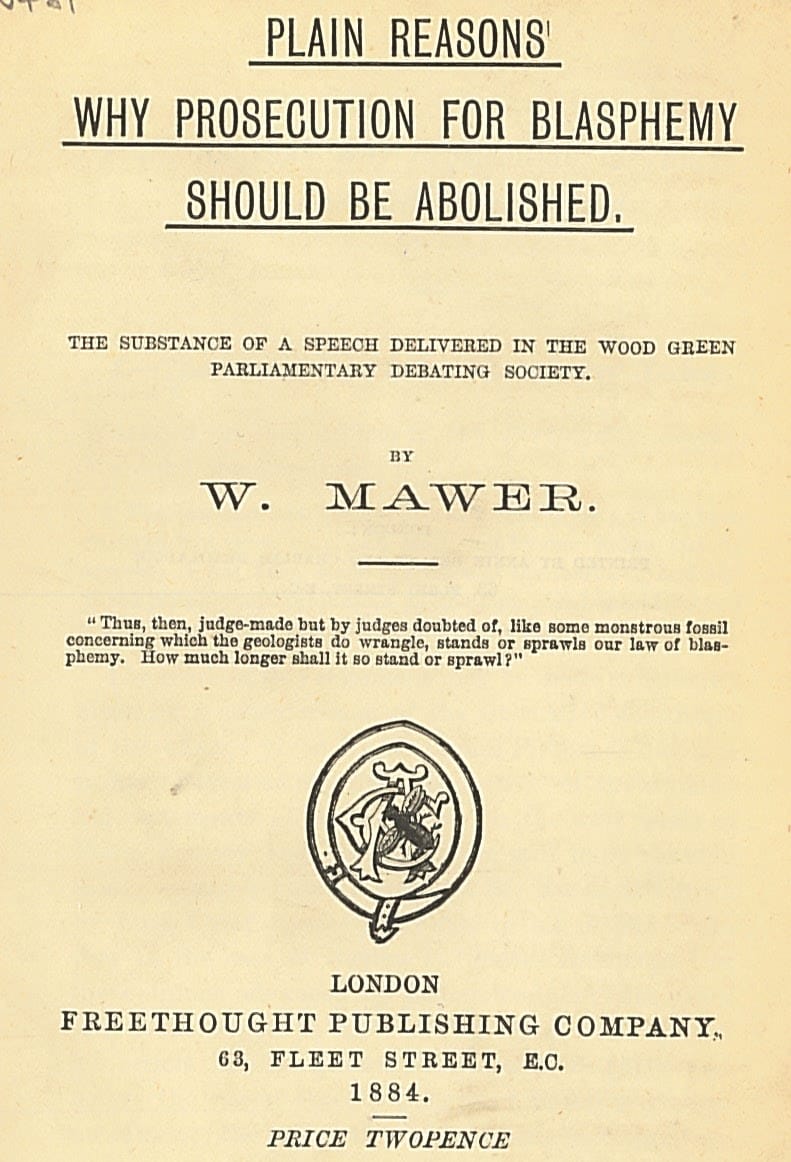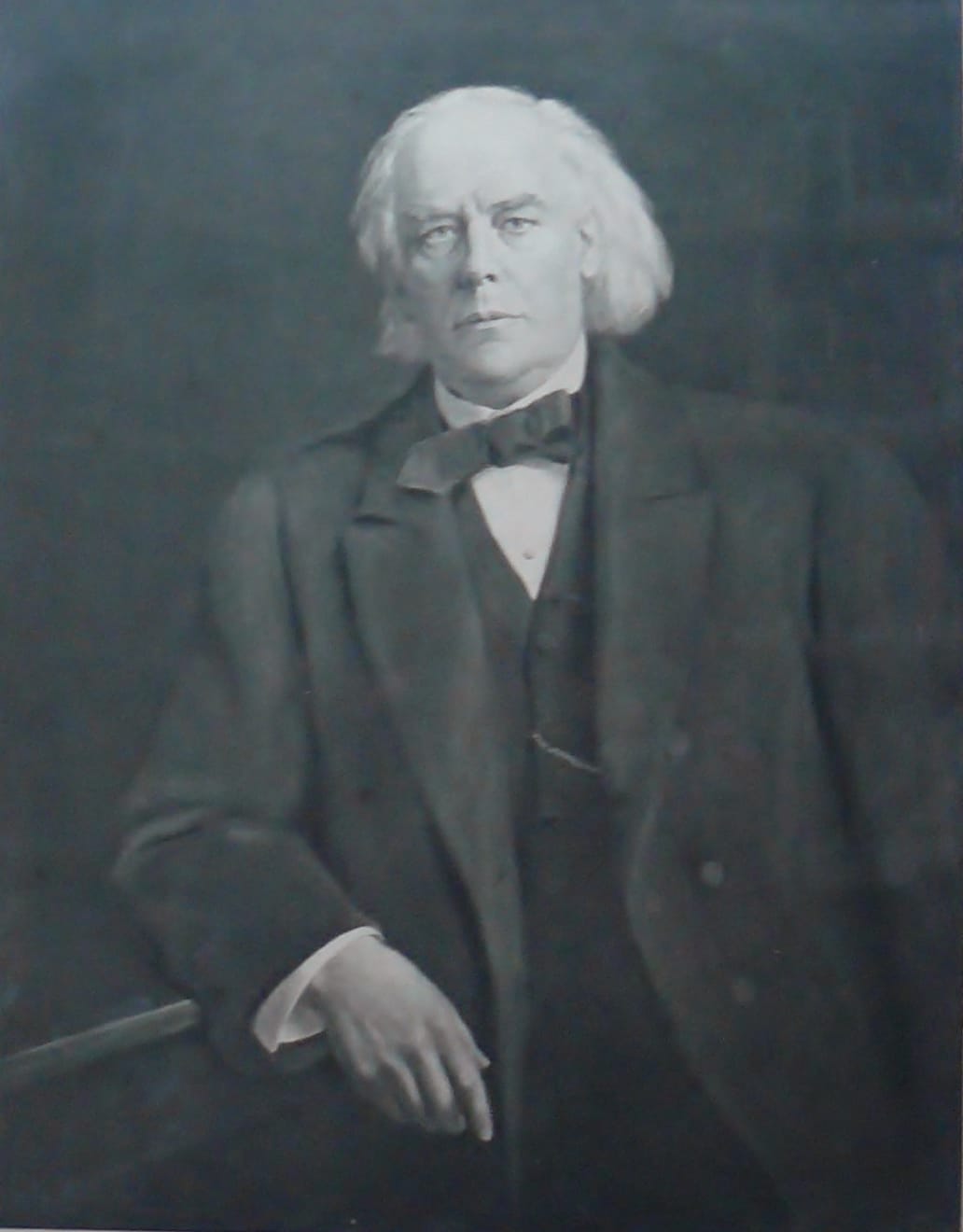Estimated reading time: 2 minutes

The 8th May 2018 marks ten years since the blasphemy laws were abolished in England and Wales through the Criminal Justice and Immigration Act, following hundreds of years of campaigning. The offence of blasphemy has its roots in late medieval canon law, which allowed ‘heretics’ to be imprisoned and burnt to death under ecclesiastical authority. In the seventeenth century, blasphemy became a common law offence, used to prosecute religious dissenters for speaking out against the Christian Church. Abolition came after years of campaigning by individuals and organisations including the National Secular Society and was based on the view that the laws were antiquated and inappropriate in the modern day and that they afforded privileges to Christianity that were not available to other faiths, or indeed those with no faith. The Act received royal ascent on 8th May 2008 and came into effect on 8th July that year.
Our pamphlet collection includes some key examples of opposition to blasphemy law amongst freethinkers and secularists. In the nineteenth century, pamphlets were the ideal medium for radical campaigners to share controversial ideas with minimal fear of legal action – they could be published anonymously and produced in a DIY fashion with the help of small radical publishers. Our Victorian pamphlets show how nineteenth-century freethinkers argued against the blasphemy laws, often recounting specific blasphemy trials to demonstrate problems with the legislation or publishing works previously involved in blasphemy prosecutions.
One pamphlet, ‘Plain reasons why prosecution for blasphemy should be abolished’ (1884) by W. Mawer, makes many of the same arguments that finally led to the abolition of the blasphemy laws in 2008. Mawer asserts that blasphemy is an antiquated concept with no place in modern society and, as an offence originally created by the clergy, should have no place in modern legislation. Another in our collection provides a transcript of Charles Bradlaugh’s speech to the Commons proposing a bill to abolish the laws on 12th April 1889. For Bradlaugh, blasphemy legislation was an issue of personal significance. A prolific pamphleteer, Bradlaugh narrowly escaped a blasphemy conviction in 1882 for his assistance in producing the anti-Christian newspaper The Freethinker. In his speech to the Commons, Bradlaugh positioned the blasphemy laws as an issue of inequality, as they acted to suppress the views of the non-Christian minority. He further suggested that they only give publicity to the views they attempt to censor and never succeed in changing the religious views of those prosecuted.

Charles Bradlaugh
Whilst Bradlaugh had escaped conviction in relation to The Freethinker, its editor, G.W. Foote, and William Ramsay, the manager of the shop where the newspaper was printed and sold, were found guilty. Foote, an outspoken secularist, wore his conviction as a badge of honour and an October 1883 issue of The Freethinker stated ‘prosecuted for blasphemy’ in bold letters on its cover. One pamphlet in our collection includes transcripts of the entire trial and was disseminated to share the arguments Foote made against blasphemy laws during the process.
Another popular form of defiance against blasphemy prosecutions was to reproduce works that had been identified as blasphemous. In 1890, J.M. Wheeler reproduced Swedish freethinker Viktor Lennstrand’s ‘The God idea’, for which Lennstrand was imprisoned for blasphemy in 1889. Wheeler’s foreword to the pamphlet states that Lennstrand had been ‘firmly rooted in the earnest Swedish mind’ thanks largely to his high profile persecution.
These pamphlets are among those currently being digitised as part of our Heritage Lottery funded project, Victorian Blogging: The Pamphleteers Who Dared to Dream of a Better World. This project will ensure that searchable digital copies of these pamphlets, that evidence some important and under-researched areas of history, are made freely available online.
